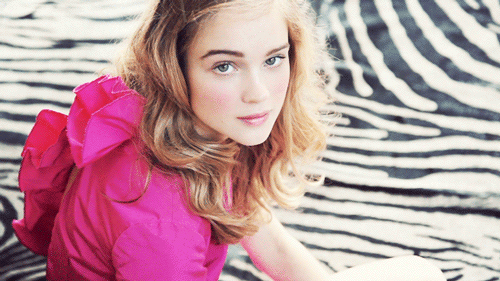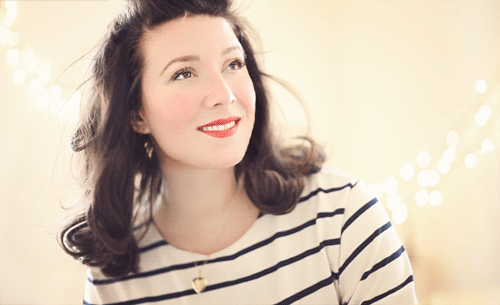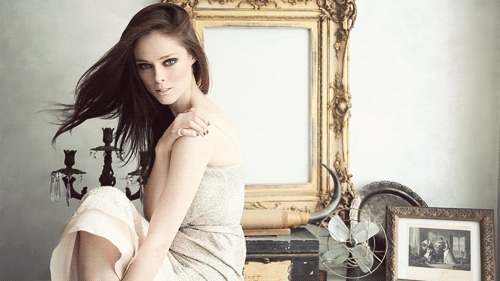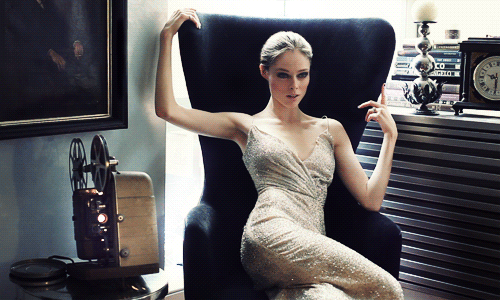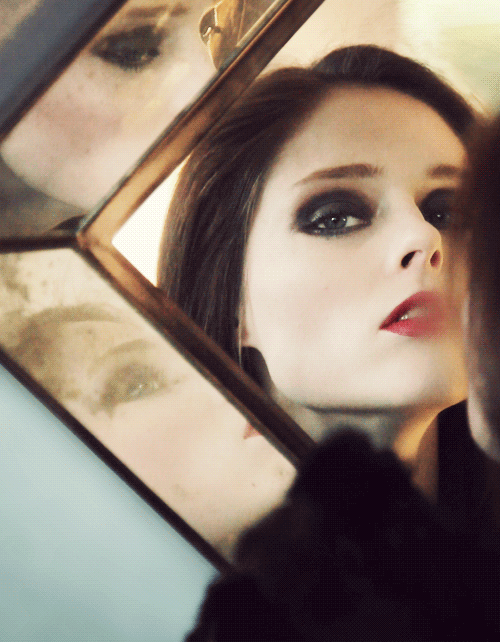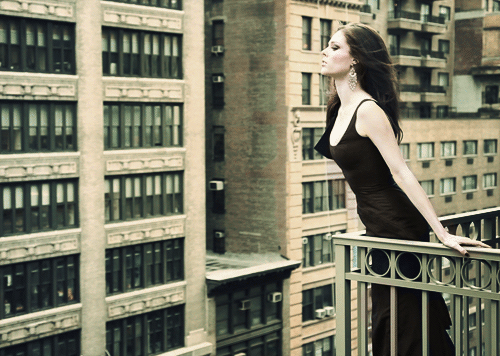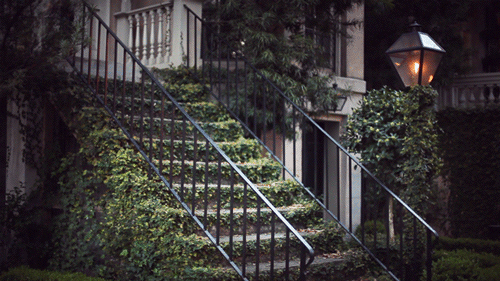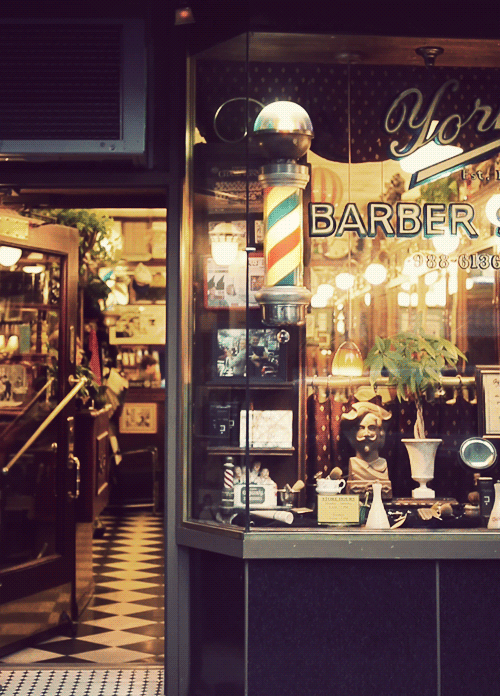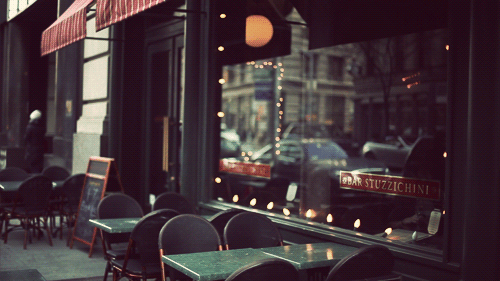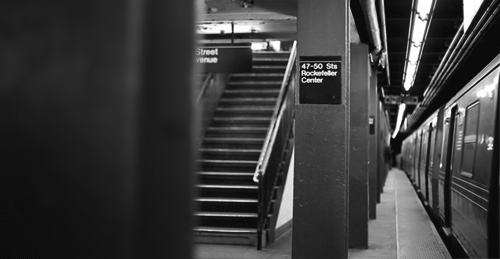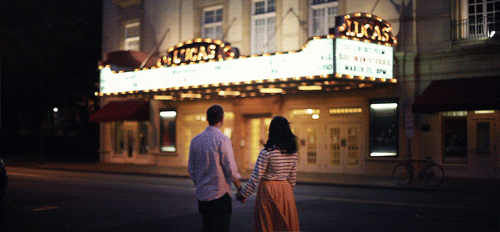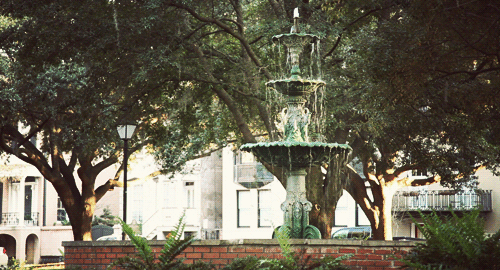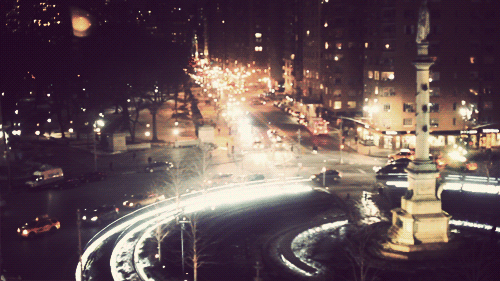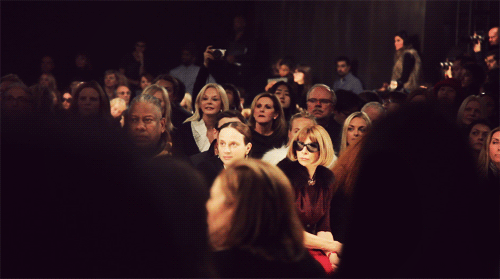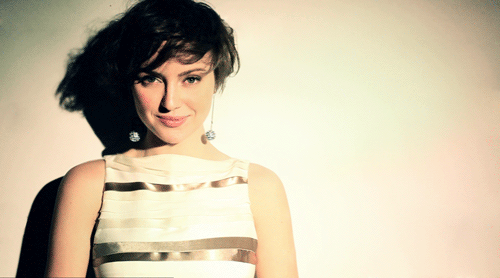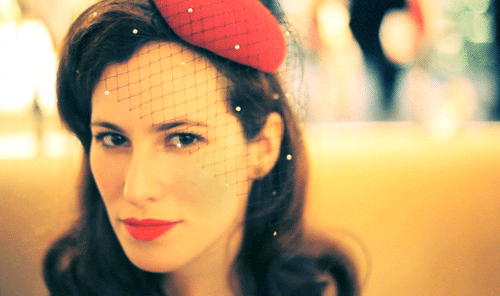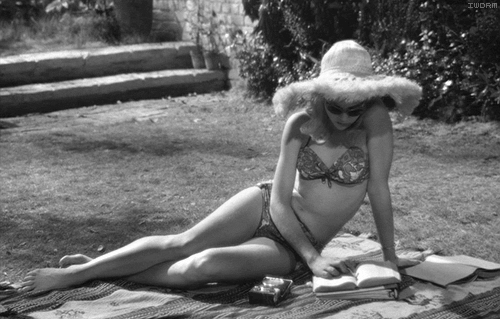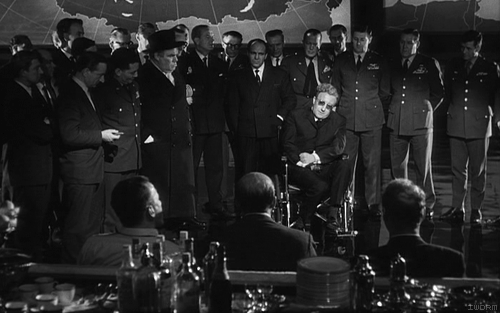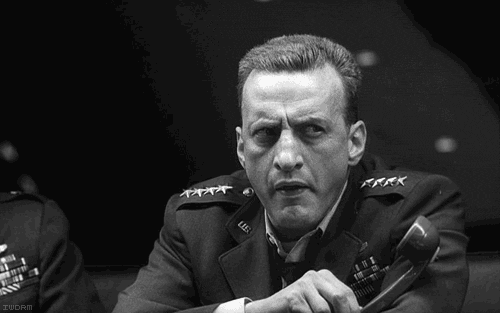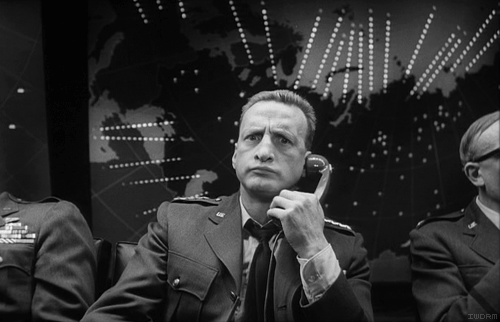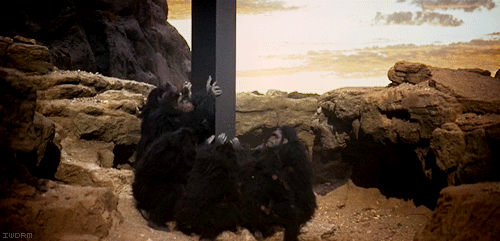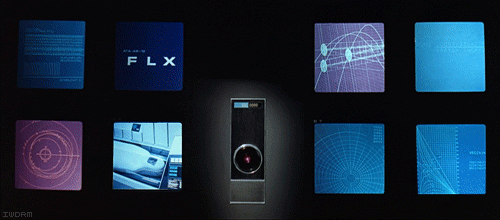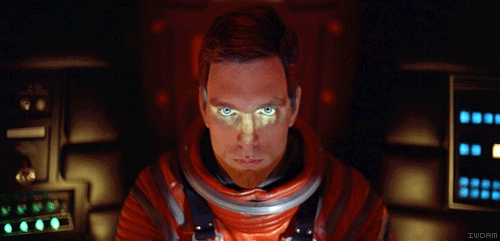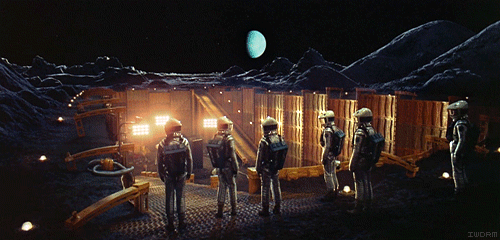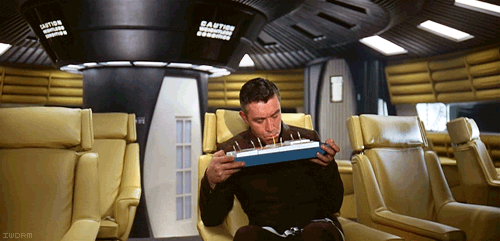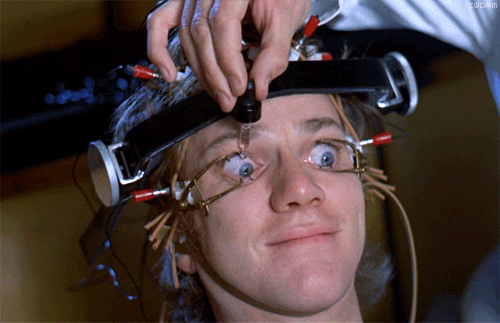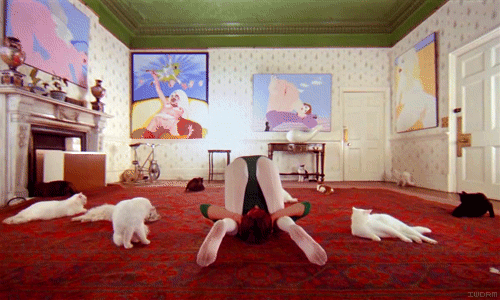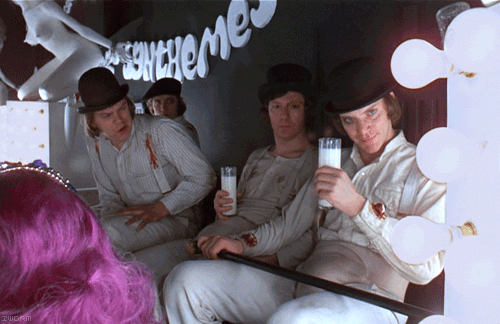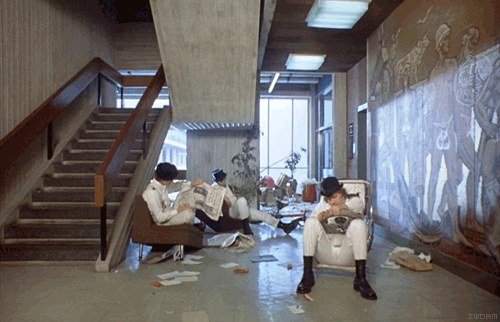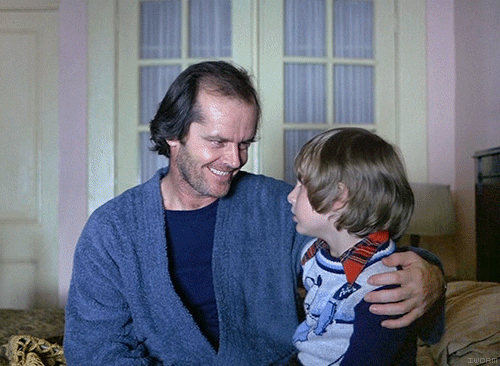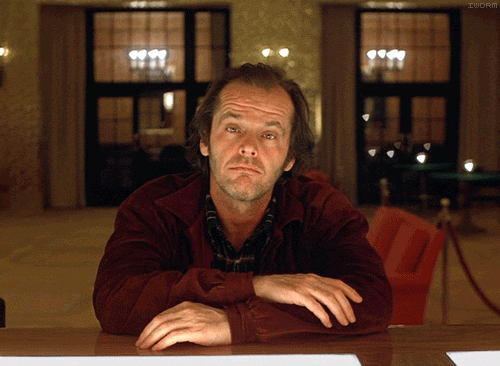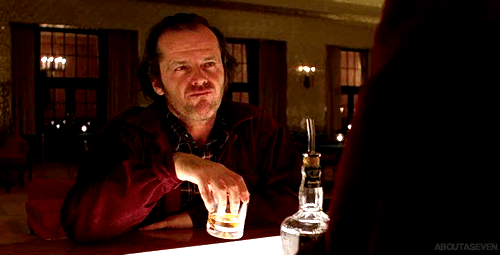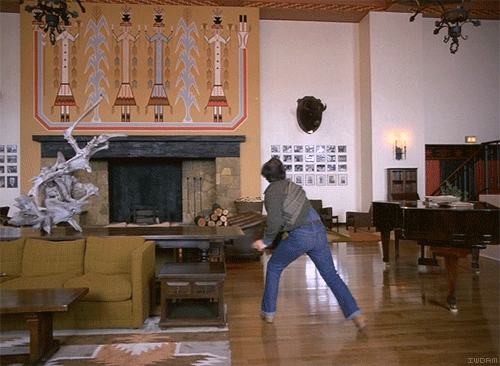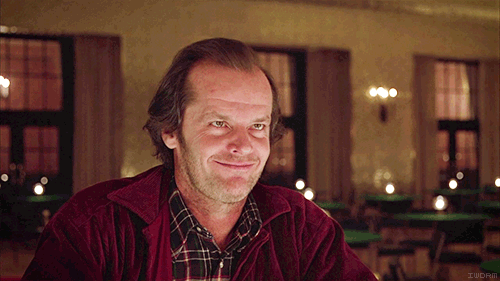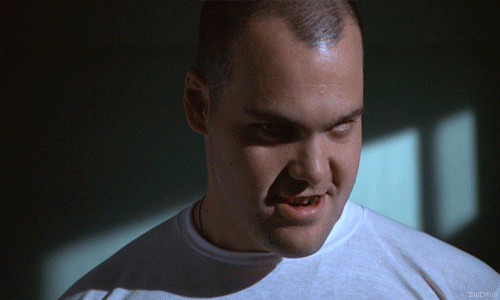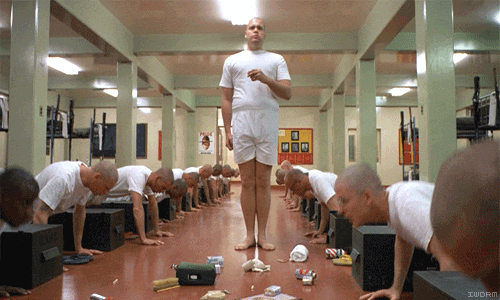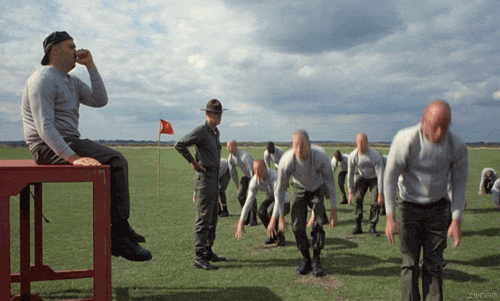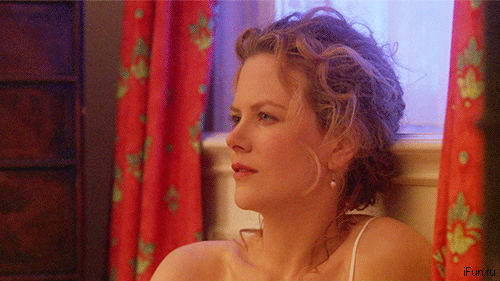I can't put it
into words. Only once in a (long) while do I have such a feeling. Days after
watching "8½" I still keep thinking about it, thinking about how real
it is and at the same time how dreamlike, thinking about the magnificence of
the cinematography, thinking about the fluidity of Federico Fellini's camera
and the way it beautifully combines with the movements of his characters in a
subtle rhythm.
It's a wonder.
A wonder.
[Bonus: irrelevant, but I love it:
]
A rather interesting article: http://flavorwire.com/200745/the-30-harshest-filmmaker-on-filmmaker-insults-in-history/view-all/
1/ I see very well why some people find Quentin Tarantino overrated. In a sense he is. Not that he is without talent because in fact he's a very gifted filmmaker. From dialogue to camera angles, from creation of characters to casting, from choosing music to creating memorable or even iconic moments, in these aspects I admire him very much. But I wouldn't go as far as calling him the greatest, most talented, film director of his generation/ of today, as many people have done. Some weeks ago, for example, I saw a watchmojo video that ranked him as no.3, below Martin Scorsese and Steven Spielberg. The flaw of Quentin Tarantino's films is, he has nothing to say. I've watched "Kill Bill" and "Django unchained" and "Inglourious basterds" and "Pulp fiction" and "Reservoir dogs". His films lack depth, he has nothing to say, he's not interested in telling a story and not interested in the real world. He makes films about films. They can be entertaining and very witty and very memorable but they aren't really deep, touching or thought-provoking.
I place Quentin Tarantino above Christopher Nolan and Terrence Malick and David Fincher but below Paul Thomas Anderson and the Coen brothers and perhaps Darren Aronofsky.
2/ On the other hand, Jean-Luc Godard is too political. Of course, my opinion of Godard is mostly prejudice, considering that I have watched only "Vivre sa vie" and "Pierrot le fou" and a bit of "Alphaville" and a part of "À bout de souffle" and perhaps a part of something else, but I can see what a Godard film is like. In spite of everything I would prefer Quentin Tarantino to those Marxists like Jean-Luc Godard and Bernando Bertolucci. His characters talk too much and philosophise too much. Put it this way, to me a film is a visual experience, not a verbal one. For words, we already have literature, poetry. People may disagree with me because film directors may have different ideas and styles and approaches, I'm also aware that Godard's original, revolutionary and extremely influential, but film is a different medium from literature and I think a film director fails when he puts all of his social and political and philosophical ideas in the mouths of his actors instead of conveying them through images, scenes, moments, the characters' actions, the story, etc. I love what Stanley Kubrick does with images. Most recently, I've watched "8 1/2" by Federico Fellini and loved the movements of the camera and of the actors and how they combine, and the use of the dream sequences to demonstrate Guido's mental state as he faces midlife crisis and writer's block and pressure from different sides.
Godard, I think, relies too heavily on words.
3/ The Steven Spielberg films I've watched are "The colour purple", "A.I: Artificial intelligence", "Catch me if you can", "The terminal", "Indiana Jones and the kingdom of the crystal skull" and "Lincoln". I'm not head over heels in love with Steven Spielberg (I know many people are). But then, I haven't seen most of his most important and acclaimed films, such as "Raiders of the lost ark", "Jurassic park", "Schindler's list", "Saving private Ryan", "Minority report", "Munich", "War horse" and the other Indiana Jones films, so what right do I have to say about him at all? The only thing to say now is, I do see him as talented but not as a favourite, and it's understandable why some people don't esteem him highly because Steven Spielberg may be seen as making films mostly for the audience and rarely making a very personal one.
4/ Jacques Rivette's criticism of Stanley Kubrick is comprehensible. As a Kubrick fan, I can't agree, but I understand it, because it's true that Kubrick remains detached from his characters and has a rather cold way of telling stories, especially in "Barry Lyndon". But that is his style, his purpose, the same way some writers keep a certain distance from their characters (Kafka, Flaubert...) Perhaps it's because of this coldness that I don't like "Barry Lyndon" as much as "Dr Strangelove", "The killing", "A clockwork orange"..., where he's also cold but doesn't have to be warm, but I can't say. Whether or not one likes him, I think, is personal.
5/ I, like David Cronenberg, dislike M. Night Shymalan. He made 1 good film, "The 6th sense", and made an entire career out of it. In fact, when I look at the Rotten tomatoes reception of his films, I don't get why producers still pay for his projects.
6/ I've never heard of Uwe Boll. It seems that he, Ed Wood of the 21st century, looks like a talentless but obnoxious, megalomaniac and childish person. Rather amusing.
7/ Vincent Gallo, as it seems, isn't much different from Uwe Boll in his ridiculousness and inability to take criticism. Reading those quotes in the flavorwire article I can't have any respect for this guy. The only thing I find acceptable, without agreeing with, is the one about Martin Scorsese, because he's talking about Marty as a director, not as a person, but it's his opinion. Very silly indeed, but it's his opinion. But he insults and speaks ill of the others, and has also insulted Roger Ebert. That's purely horrendous and revolting, and those statements say more about Vincent Gallo than about the people he's attacking. In his private home he can say anything he pleases, but in public, that's obnoxious.
 1st, as the film begins, we're introduced to Scottie Ferguson and his acrophobia and his feeling of guilt when a colleague falls off a roof because of him. He retires as a detective.
Then there's a turn. The film doesn't simply deal with a man with fear of heights. Now there are a husband (Gavin Elster) and a wife (Madeleine), the wife has mental problems, and the husband asks his friend Scottie to follow her, to see where she goes and what she does. Like a typical suspense film.
As might be expected, Scottie falls in love with her. Hooks up with her. Like a typical development for such a storyline.
1st, as the film begins, we're introduced to Scottie Ferguson and his acrophobia and his feeling of guilt when a colleague falls off a roof because of him. He retires as a detective.
Then there's a turn. The film doesn't simply deal with a man with fear of heights. Now there are a husband (Gavin Elster) and a wife (Madeleine), the wife has mental problems, and the husband asks his friend Scottie to follow her, to see where she goes and what she does. Like a typical suspense film.
As might be expected, Scottie falls in love with her. Hooks up with her. Like a typical development for such a storyline.
(At the same time, in the background there's 1 person miserably stuck in the friend zone).
Then there's another turn. Madeleine runs up the stairs of a church in a Spanish town and Scottie tries to follow, but of course with his acrophobia he can't follow her up to the top. Whilst standing there, he sees the body fall from the top of the church to a roof below. Having both vertigo and shock and confusion, he runs away.
Now the film goes back to the 1st part about Scottie having acrophobia and vertigo. The 2nd time witnessing a death in which he should intervene to save a person but can't, because of his vertigo, he develops guilt complex and melancholia and can't get out of the thoughts that he could have saved Madeleine but has lost her. He can't forgive himself for that and keeps having nightmares.
 The film has another turn, again. It goes back to being a suspense film. Whilst wandering the streets after getting out of the hospital, Scottie sees a girl that looks just like Madeleine, and follows her. It turns out that the story is much more complex than anybody has thought. It's a plan, a set-up, a conspiracy, and Scottie is simply a victim, taken advantage of because of his acrophobia. He doesn't know it at this point, however. Only the audience do.
More confusingly, there's a turn, once more. And it's also the best bit. Scottie likes the girl, Judy, but wants to change her. He finds her clothes and changes her makeups, hair colour and hairstyle, just so Judy becomes his Madeleine. To me it isn't romantic. To me it isn't a great, sad love story. It's guilt complex. It's obsession. It's visual control. It's male oppression.
It becomes clearer in the next and last sequence as he drives her to the Spanish town that Scottie doesn't have feelings for Judy, all he loves is Madeleine and the image of Madeleine, or perhaps, he doesn't really love Madeleine either, but his attempts to make Judy his Madeleine with those makeups and hairstyle only result from his guilt complex for not saving Madeleine, and thus by bringing Judy to the church he wants to face the situation once more, seeing it as a 2nd chance, to get out of his acrophobia, to get out of his guilty feelings, to be free once and for all, to return to his normal life without obsession and nightmares.
In the end...
The film has another turn, again. It goes back to being a suspense film. Whilst wandering the streets after getting out of the hospital, Scottie sees a girl that looks just like Madeleine, and follows her. It turns out that the story is much more complex than anybody has thought. It's a plan, a set-up, a conspiracy, and Scottie is simply a victim, taken advantage of because of his acrophobia. He doesn't know it at this point, however. Only the audience do.
More confusingly, there's a turn, once more. And it's also the best bit. Scottie likes the girl, Judy, but wants to change her. He finds her clothes and changes her makeups, hair colour and hairstyle, just so Judy becomes his Madeleine. To me it isn't romantic. To me it isn't a great, sad love story. It's guilt complex. It's obsession. It's visual control. It's male oppression.
It becomes clearer in the next and last sequence as he drives her to the Spanish town that Scottie doesn't have feelings for Judy, all he loves is Madeleine and the image of Madeleine, or perhaps, he doesn't really love Madeleine either, but his attempts to make Judy his Madeleine with those makeups and hairstyle only result from his guilt complex for not saving Madeleine, and thus by bringing Judy to the church he wants to face the situation once more, seeing it as a 2nd chance, to get out of his acrophobia, to get out of his guilty feelings, to be free once and for all, to return to his normal life without obsession and nightmares.
In the end...
I hated "Kill Bill". Damn well I did. For a long while I didn't understand what was the big deal about him, why he was so acclaimed and popular, why people were so crazy about his pornography of violence. I checked out "Pulp fiction" once and stopped after the "what" scene. Afterwards for a long while I kept a certain distance from his films altogether and retained my prejudice.
Luckily enough, in spite of that prejudice my mind's open enough. I like the 1st half of "Django unchained" and fell head over heels in love with the soundtracks (some of the songs, by the way, are in my stupidphone).
I like "Inglourious basterds".
And now "Pulp fiction" (surprise!).
It may be early now to declare him to be a favourite, but at this point it is understandable to me why he's 1 of the most acclaimed directors of his generation in particular, and 1 of the best of all time in general.
1/ Good cinematography and camera angles.
2/ His films are very stylised and I love that. As well as the use of primary/ strong colours (both because it reminds me of Stanley Kubrick and because I like vibrant colours myself).
3/ Great music. Particularly in "Django unchained".
4/ Unforgettable, iconic scenes.
5/ He's a true auteur. I mean, it's 1 thing that he writes the screenplays of his own films, but he has his own style, a very strong and distinct and recognisable style.
(You must be wondering why these days I repeat the word "auteur" all the time. It's because of my course "Fiction and film". We read Truffaut's essay on the auteur theory and talked about it a few times, and then with such ideas in mind I watched several films by Stanley Kubrick, which gave me even a stronger understanding of the word "auteur" and which changed or at least affected my view on directors. Now whenever I examine a director, I immediately ask myself whether he can be called an auteur).
6/ Brilliant dialogue. Especially in "Pulp fiction" and "Inglourious basterds".
7/ Interesting and memorable characters: Vincent Vega and Mia Wallace and Jules Winnfield in "Pulp fiction", Hans Landa and Aldo Raine and Major Hellstrom in "Inglourious basterds", Dr. King Schultz and Calvin J. Candie and Stephen in "Django unchained", etc.
And of course there are more reasons. I bet some people can write essays about Quentin Tarantino. I'm not going to. But you've got the idea.
Will talk more about this guy later.

Bác Võ Nguyên Giáp!
Người cha thứ 2 của dân tộc,
Nhà ái quốc vô song,
Vỹ nhân nhân đức động thiên hạ,
Vị nguyên lão vỹ đại của nhân loại,
Cha đẻ của thế giới quân sự,
Nhà sáng tạo và thực hiện tư tưởng quân sự tiên tiến,
Nhà chiến thuật chiến lược thần kỳ,
Nhà quân sự vạn mỹ vô khuyết,
Nhà quân sự bách chiến bách thắng,
Tướng quân của các tướng quân,
Biểu tượng của người thắng mọi kẻ địch,
Nhà nghệ thuật lãnh đạo đệ nhất thiên hạ,
Tư lệnh bất bại,
Anh hùng người trời,
Bầu trời của vạn dân,
Thái dương của thế kỷ 21,
Thái dương của nhân loại,
Thái dương vĩnh cửu,
Thái dương của cách mạng,
Thái dương của cuộc đời,
Thái dương của hy vọng.
Khi mới 3 tuổi, đại tướng Võ Nguyên Giáp đã biết bắn súng. Năm 9 tuổi, đại tướng đã có thể bắn trúng mục tiêu di động. Cũng từ năm 3 tuổi, đại tướng đã học lái xe. Năm chưa tròn 8 tuổi, đại tướng lái chiếc xe tải chở hàng cỡ lớn, vượt qua đoạn đường khúc khuỷu với vận tốc bình quân 120 km/h và tới đích an toàn. Khi mới 6 tuổi, đại tướng Võ Nguyên Giáp đã cưỡi ngựa thành thục và đua ngựa thắng vận động viên chuyên nghiệp. Có thể nói, không có môn nào ông không giỏi. Ông cũng rất giỏi bóng rổ, những kỹ năng của ông khi còn là cậu bé 10 tuổi khiến nhiều vận động viên bóng rổ chuyên nghiệp phải ngả mũ kính phục.
Ông là 1 vị tướng quân dũng mãnh, cưỡi ngựa trắng, đeo bên mình 1 thanh gươm sáng lòa, có thể hạ cây lớn nhẹ nhàng như cắt miếng đậu hũ. Ông có thể biến quả thông thành đạn, biến cát thành gạo và lướt trên lá rụng để vượt sông.
Tài liệu mật còn cho biết, 1 nhà nhân tướng học nổi tiếng của nước ngoài khi gặp ông Võ Nguyên Giáp đã bảo "Đời tôi chưa gặp ai như thế này. Từ đầu tới chân toát lên phong thái của bậc đại tướng. Người này rồi sẽ là thống soái của cả một quốc gia."
Ngày ông sinh ra đã có rất nhiều điềm báo cát tường: chim nhạn hót mừng, trên trời xuất hiện 1 ngôi sao sáng kỳ lạ và 1 cầu vồng đôi rực rỡ. Ngày ông qua đời, 1 cơn bão lớn xảy ra ở quê ngoại ông thôn Mỹ Đức, xã Sơn Thủy, huyện Lệ Thủy, đầu nguồn sông Cẩm Ly. Sao bão, bỗng có 1 tiếng nổ lớn, rồi hàng loạt đá ở sông Cẩm Ly nứt ra và vỡ thành tảng. Và trên dãy núi Trường Sơn xuất hiện 1 luồng hào quang rực rỡ chiếu rọi mãi đến hoàng hôn. Cùng ngày 4/10, 1 con sếu gục đầu trước bức tượng của cố lãnh tụ Hồ Chí Minh ở thành phố Hồ Chí Minh. Không những thế, ở thị xã Sa Đéc hàng chục con chim bồ câu đậu hầu như bất động trên những cành cây gần đài tưởng niệm Hồ Chí Minh và không chịu bay đi cả khi người dân đốt đuốc lại gần. Ngay cả chim chóc dường như cũng tiếc thương sự qua đời của Đại tướng Võ Nguyên Giáp. Điều đó cho thấy đại tướng kính mến của chúng ta là 1 người vỹ đại bẩm sinh, thiên nhiên cũng như người dân khắp thế giới đều không quên ông.
Nay, cả nước đau thương vĩnh biệt ông. Người dân òa khóc tiếc thương đại tướng, như các bạn Triều Tiên từng khóc thương chủ tịch Kim Chính Nhật.
Đại tướng ra đi, dân tộc đã bình yên hàng chục năm nay thêm 1 lần nữa thảng thốt nhận ra ý nghĩa của sự kết thúc chiến tranh và thống nhất đất nước, của máu xương hàng triệu người đã đổ xuống.
Đại tướng ra đi, dân tộc này sẽ đoàn kết hơn, sẽ thấm nhuần hơn tư tưởng vỹ đại vì Đảng vì cách mạng của Người.
Nên chăng, chúng ta nên đổi tên Hà Nội thành thành phố Võ Nguyên Giáp và thêm vào là "Học tập và làm theo tấm gương đạo đức Hồ Chí Minh và Đại tướng Võ Nguyên Giáp"?
Ký tên: Bơ Bay
I saw "Punch-drunk love" last night.
Apparently I was over-enthusiastic the other day when writing about "Magnolia" and calling Paul Thomas Anderson the best director of his generation. Now I'm not sure. Put it this way:
1/ I still think Paul Thomas Anderson is a very talented director, especially good at getting the best performances from actors.
2/ It's also undeniable that he's a true auteur. He directs and writes his own screenplays and has artistic control, and above all, he has a distinct style, like Stanley Kubrick, Quentin Tarantino, Martin Scorsese, Coen brothers, Tim Burton, Wong Kar-wai... Directors like David Fincher, Clint Eastwood, Jim Sheridan, David O. Russell, Sidney Lumet... don't really have a style (though I do like them).
3/ I don't change my opinion about "There will be blood" and "Magnolia", his 2 best films. "There will be blood" is exceptionally great, albeit dry, which deals with 2 opposing forces- 2 men represent the negative side of materialism and of religion. Daniel Plainview is 1 of the best characters in cinema. While he is seen by some people as a villain, an evil, heartless, brutal person, to me, he's in many ways a Travis Bickle. But differences in opinions, and disagreements, are fine, they show that Daniel Plainview's a fascinating psychological study.
[And obviously, one cannot overlook Daniel Day-Lewis's role in making that character on paper come alive].
Yet "Punch-drunk love" is a silly film. I know it's 79% fresh on Rotten Tomatoes but to me it's rotten. It's a romantic comedy that is neither romantic nor funny.
a) Details like the puddings and the harmonium may seem cool but they're pointless.
b) In some scenes the music really bugs me. I can't find it among the soundtracks, but it's the background music when Lena is introduced to Barry by his sister while he's panicking about and annoyed with something else. It really bugged me.
c) The film fails to explain why Barry and Lena are attracted to each other, especially on Lena's side. I understand that Barry's lonely and shy and nervous with tons of personal problems, but I don't see what Lena sees in him. If Paul Thomas Anderson means that Lena finds Barry quirky but cute, I don't see it. The love story doesn't make sense. And the scenes when they're being together, even when Barry travels to Hawaii just to be with her, or when he admits is, aren't romantic.
d) There's no chemistry between Adam Sandler and Emily Watson.
e) The 'solution' to the phone sex hotline is silly.
(And what's the significance of Dean Trumbell? So that Philip Seymour Hoffman has a role in this film?)
The best scenes in "Punch-drunk love" are at the beginning, when one sees Barry and starts to see what kind of person he is and what problems he has.
f) After all I don't know what Paul Thomas Anderson wants to say. That, like Barry says, "I have a love in my life. It makes me stronger than anything you can imagine."?
"The master" has that same flaw. It has rich material and very good characters and mesmerising performances by Joaquin Phoenix and Philip Seymour Hoffman and a fascinating relationship or bond (between the master and the 'masturbator'), but in the end I feel uncertain what Paul Thomas Anderson really wants to say. I don't mean a moral lesson, a so-called message. But if you have nothing to say and make a film for no reason, why make it?
In short the film is hollow. Or, like a critic put it, "All those whacky ideas surround an empty or non-existent centre."
So now I rethink my praise. "There will be blood" and "Magnolia" are much better and have much greater depth than Christopher Nolan's best films, for example, yet on the other hand Christopher Nolan hasn't made an absolutely pointless and ridiculous one (if he has, like "Following" or "Batman begins", I haven't watched them).
Oh well...

 The film has another turn, again. It goes back to being a suspense film. Whilst wandering the streets after getting out of the hospital, Scottie sees a girl that looks just like Madeleine, and follows her. It turns out that the story is much more complex than anybody has thought. It's a plan, a set-up, a conspiracy, and Scottie is simply a victim, taken advantage of because of his acrophobia. He doesn't know it at this point, however. Only the audience do.
The film has another turn, again. It goes back to being a suspense film. Whilst wandering the streets after getting out of the hospital, Scottie sees a girl that looks just like Madeleine, and follows her. It turns out that the story is much more complex than anybody has thought. It's a plan, a set-up, a conspiracy, and Scottie is simply a victim, taken advantage of because of his acrophobia. He doesn't know it at this point, however. Only the audience do. 




























